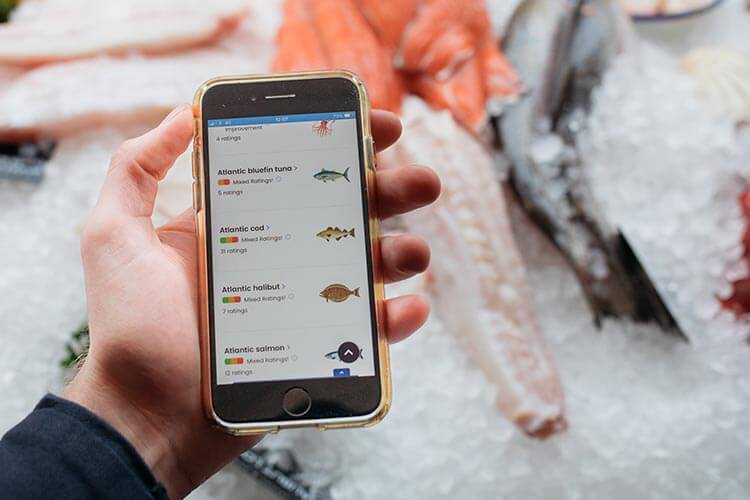
From sustainable and affordable tinned fish, to upcycling clothing and looking to the ocean for style inspiration, trends set to be big in 2024 see the ocean take centre-stage. The Marine Conservation Society rounds up some of the best ocean trends for 2024.
Go-to refillables

With top beauty brands creating refillable options, as well as supermarkets such as Aldi trialling refillable dry goods, could 2024 be the year we ditch plastic food packaging?
In its inaugural Beachwatch Report, the Marine Conservation Society reported that nine of the top ten litter items cleared from beaches by volunteers in 2022 were plastic or polystyrene. Plastic or polystyrene was also the top litter material, accounting for 81.5 per cent of litter.
The work of the charity wouldn’t be possible without players of the People’s Postcode Lottery, helping to fund beach cleans and provide kit. Find out more about beach cleans with the charity and the importance of collecting data. The charity’s 2023 report, with items collected in 2023, will be released in March 2024.
Jellyfishing

From fashion to haircuts, inspiration for this big-on-top style has skyrocketed in 2023 and is set to continue in 2024. Pinterest Predicts shows a 615% increase for searches for ‘jellyfish haircut’.
But this obsession goes further than fashion. The Marine Conservation Society reported its highest number of real-life jellyfish reports this year, with a 32% increase in jellyfish reports from volunteers compared to the previous year. Data collected by volunteers is used to identify changes in our ocean over time, like warming waters.
The charity’s report provides a detailed breakdown of the species observed, revealing the diversity of jellyfish in UK and Irish waters. You can read the full Wildlife Sightings report from the charity here, which also tracks marine turtles. Anyone can report a sighting to the Marine Conservation Society via a quick online form.
Waste-not, want-not

Secondhand clothes are nothing new, but with the rise in users of apps such as Vinted, the accessibility of unwanted clothing is like never before.
Pinterest Predicts reports searches for ‘zero-waste sewing patterns’ and ‘scrap quilts patterns leftover fabric’ both increased by 80 per cent. Boomers and Gen X are getting creative, helping to cut fast fashion and save our seas.
Research estimates that between 200,000 and 500,000 tonnes of microplastics from textiles enter the global marine environment each year, with the production of new clothing causing especially high microplastic pollution. These tiny plastics, or microfibres, end up in our seas and can cause harm to marine life. Anything that we can do to reduce this in 2024 is a win for the ocean.
In November 2023, the Marine Conservation Society handed in its petition for washing machine manufacturers to be required, by law, to include microfibre filters in all washing machines from 2024, surmounting 44,000 signatures. Read more about clothing and the ocean here.
Cheap and sustainable tinned fish

Looking carefully at where your food comes from and choosing sustainable options is an impactful way to reduce your footprint on the environment. However, a lot of us are concerned by the cost this comes at.
Tinned fish was set to have a ‘moment’ in 2023, but it’s likely to continue into 2024 as the cost-of-living crises continues. Whip up a sustainable meal from tinned tuna, sardines or anchovies (when certified by the MSC blue tick) for a feel-good supper. Check the Marine Conservation Society’s Good Fish Guide for the most sustainable green-rated seafoods or use the Seafood Checker for an easy way to find the most sustainable seafood options.
Thanks to Postcode Lottery players

Players of People’s Postcode Lottery have raised more than £4.7 million to support Marine Conservation Society’s work, including the ocean trends set for 2024.
‘It’s fantastic to see ocean-friendly trends taking centre stage in 2024,’ said Laura Chow, Head of Charities at People’s Postcode Lottery. ‘Player funding is enabling essential research on our seas, collecting data, and understanding changes, all contributing to the protection of our seas for future generations.’
Find more from the Marine Conservation Society at www.mcsuk.org



